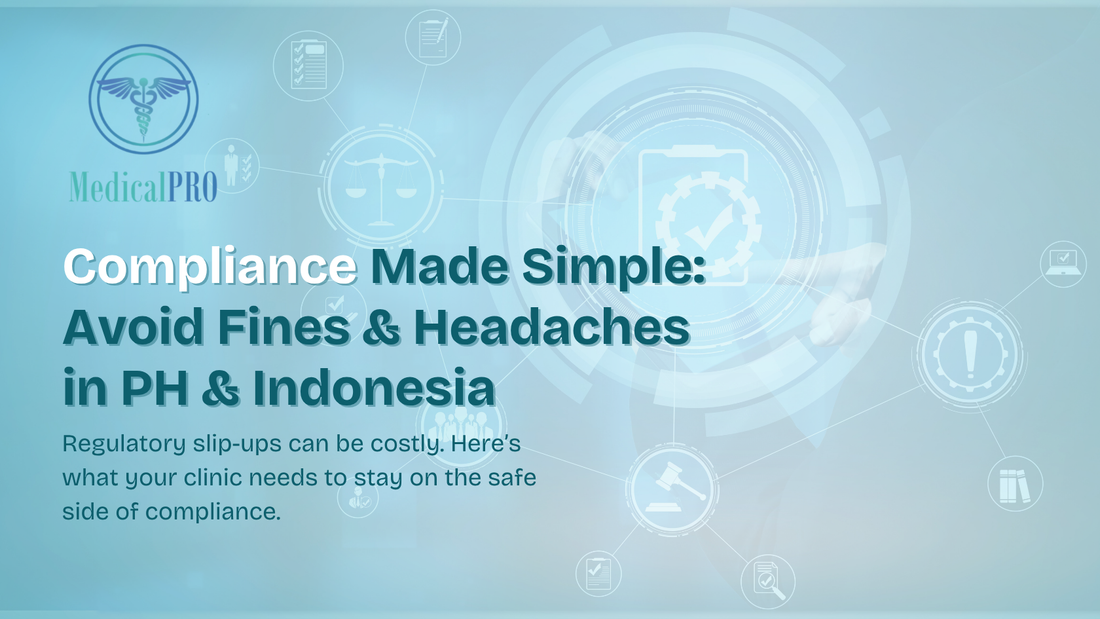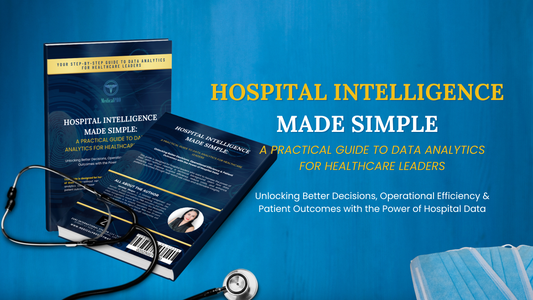Regulatory slip-ups can be costly. Here’s what your clinic needs to stay on the safe side of compliance.
The Clinic That Meant Well—but Paid the Price
Dr. Yuni runs a reputable general practice in South Jakarta. Like many clinic owners, her focus has always been on delivering great patient care—not paperwork. One day, her assistant received a letter from local health authorities: a compliance audit was scheduled within the week.
They weren’t ready.
Their patient logs were still handwritten. There was no clear data privacy policy in place. Consent forms were inconsistent. It wasn’t malpractice—but it wasn’t compliant, either. A few weeks later, Dr. Yuni received a fine and a written warning. Worse, she had to temporarily pause operations to straighten everything out.
She didn’t break any laws on purpose. But non-compliance doesn’t need bad intent—it just needs oversight.
Why Compliance Matters More Than Ever
Whether you run a dental clinic in Cebu or a pediatric practice in Bandung, regulatory compliance is not optional. And it’s not just about avoiding penalties—it’s about protecting your patients, your staff, and your business.
Here’s why it matters now more than ever:
- Increased digitalization means clinics are collecting more patient data—and must protect it.
- New national health insurance policies and integrations require proper documentation and reporting.
- Patients are more informed and expect transparency around their care and data.
From the Philippines’ Data Privacy Act to Indonesia’s UU Perlindungan Data Pribadi, governments are stepping up enforcement. Clinics that fail to comply may face:
- Monetary fines
- Operational delays
- Reputational damage
- Loss of accreditation or business licenses
What Does Compliance Look Like in Practice?
It may sound complex, but healthcare compliance boils down to a few key principles:
- Accurate, consistent patient documentation
- Proper handling of personal health information
- Transparent consent and communication processes
- Standardized billing and medical records
- Regular reporting to health authorities (if required)
In traditional paper-based clinics, keeping track of all this is overwhelming. But digital clinics have a distinct advantage.
How Digitization Makes Compliance Easier (Not Harder)
Contrary to what many clinic owners believe, going digital simplifies compliance—it doesn’t complicate it. Here's how:
1. Secure and Centralized Records
With a system like MedicalPro, all patient records are stored in one secure, encrypted platform. Every note, prescription, lab result, or follow-up is time-stamped and backed up.
No more lost files. No more guessing if a consent form was signed.
2. Data Privacy by Design
Cloud-based platforms offer user permission controls. That means only authorized staff can access sensitive patient data. It also provides an audit trail for who viewed what—and when.
Transparency is not just good practice—it’s legally required.
3. Standardized Forms and Templates
Digital tools allow you to use government-approved templates for:
- Consent forms
- Health declarations
- Referral letters
- Billing statements
This consistency ensures you’re aligned with local regulations without reinventing the wheel.
4. Instant Reporting
Need to report a case to DOH or BPJS Kesehatan? A good EMR lets you export the necessary reports with a few clicks—accurate and ready to submit.
Common Compliance Gaps in Clinics (And How to Fix Them)
If you’re not sure where your clinic stands, check for these warning signs:
- ✅ Still using handwritten charts
- ✅ No digital backups of patient records
- ✅ Unclear or inconsistent consent process
- ✅ No privacy policy or training for staff
- ✅ Manual billing with no audit trail
If you checked any of the above, your clinic may be at risk—not because you're careless, but because you're operating without the right tools.
Fixing it doesn’t require a lawyer. It just requires a digital partner that understands local needs.
A Real-World Success: The General Clinic in Bacolod
One family clinic in Bacolod started using MedicalPro in 2024. Within three months:
- All patient files were digitized and searchable
- Consent was collected via mobile during intake
- Billing templates matched PHIC and HMO formats
- Their staff completed a free compliance training module
When a surprise health bureau inspection occurred later that year, they passed with zero issues.
The owner shared, “I used to dread compliance. Now, it’s just part of how we operate—smooth and automatic.”
The Takeaway: It’s Not Just About Rules. It’s About Respect.
Compliance is often seen as red tape. But at its core, it’s about respecting your patients’ rights, your staff’s time, and your business’s future.
It doesn’t have to be a burden. With the right system, it becomes a strength.
One Small Action You Can Take Today
Don’t wait for a warning letter or patient complaint. Do a simple compliance check:
- Are your patient records consistent and secure?
- Do you have signed consent for every visit or procedure?
- Can you pull up required reports easily if asked?
If the answer to any of those is “no” or “not sure,” start with a small step—like exploring how MedicalPro helps clinics stay compliant from day one.
Because compliance isn’t a task. It’s part of being a modern, trusted, and future-ready clinic.







